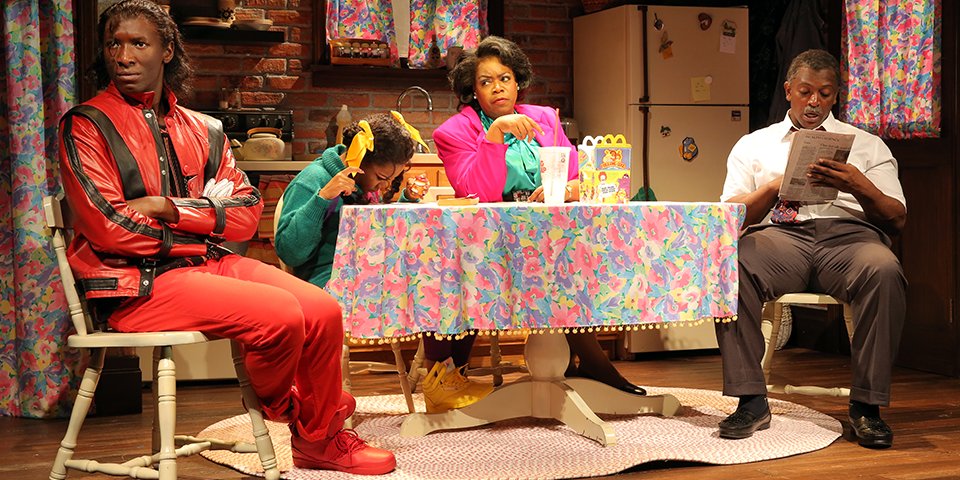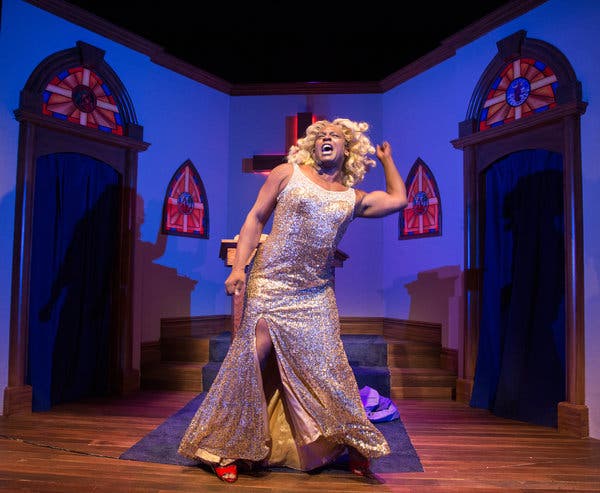
Biography
Robert O’Hara’s professional career as a playwright began in 1996 with the Public Theater’s production of his Columbia master’s thesis play Insurrection: Holding History, which was awarded Newsweek’s Oppenheimer Award for Best New American Play. O’Hara served as the Mellon Playwright in Residence at the Woolly Mammoth Theater in Washington, D.C. from 2013 to 2015 and had been active with that theater company since 2009 when his play Antebellum was produced there, for which he was awarded the Helen Hayes Award for Outstanding New Play. His play Bootycandy premiered at the Woolly Mammoth as well in 2011, before moving to the off-Broadway theater Playwright’s Horizons where it would earn him and his cast the Obie Award’s Special Citation, as well as the LAMBDA Award for Best Literary LGBT Drama. He directed Bootycandy for the Windy City Playhouse in Chicago in 2017, where it was met with unanimous and widespread critical acclaim. His other works include Brave Blood, produced by the Transparent Theater Company in Berkeley, CA in 2001, An American Maul, produced during his residence at the American Conservatory Theater in 2018, and Barbecue, produced in 2015 by The Public Theater in New York and for which he received the NAACP Award for Best Play. He has also written several projects for the screen, including an unproduced screenplay based on the life of Richard Pryor set to be directed by Martin Scorsese, and a script for the unproduced Oscar Micheaux biopic to which the equally legendary black filmmaker Spike Lee was attached. His over twenty years of playwriting have garnered him the TANNE Award for Exceptional Body of Work.
Career Highlight
Besides his work as a playwright, O’Hara is also an exceptionally acclaimed theater director; having won the NAACP Award for Best Directing for Danai Gurira’s Eclipsed and having been nominated for the Tony Award for Best Director for his work on the 2020 production of Jeremy O. Harris’ Slave Play at the Golden Theater.
Bootycandy (2011)
- Breakdown:
- 2M African-American
- 2F African-American
- 1M White
- Synopsis:
- Bootycandy loosely follows the early life and coming-of-age of Sutter, a gay black man trying to explore and embrace his identity in the face of a community that may not always feel at ease with homosexuality. The play is presented as a series of vignettes, or short plays, many of which feature anecdotes, monologues, or experimental confrontations wholly unrelated to the development of the play’s protagonist–instead choosing to detour down hilarious paths of absurd, irreverent, and brazen sexual comedy (e.g. a phone conversation between three women, one of whom wants to name her daughter “Genitalia”, or a drag-queen pastor preaching “werk” to a shocked congregation). Unafraid to break down the relationship between audience and performer and performer and character–on several occasions flirting with highly experimental and deconstructionist style–O’Hara delivers one moment of shocking and occasionally poignantly heartfelt humor after another, along the way giving the audience a rich and complex taste of how sexuality and homosexuality express themselves in the African-American community, along with the little idiosyncratic ways in which family knows how to both push our buttons and lift us up when we need it most.
- Development/Production History:
- Bootycandy began as an informal staging of several unrelated short plays written by O’Hara. Later, he was given the idea to combine them into a formal, long-form work by one of his colleagues at the Woolly Mammoth Theater during his tenure as their artist in residence. In 2011, the play received its world premiere at that same theater. It has been produced several times since, notably at the Wilma Theater in Philadelphia and the Windy City Playhouse in Chicago to great critical acclaim, and most critically at the Playwrights Horizons Theater in New York City, where it earned the Obie Award’s Special Citation, as well as the LAMBDA Award for Best Literary LGBT Drama.
- Link To Purchase:
- Photos:


- Plays
- Insurrection: Holding History (1996, The Public Theater in New York City)
- Brave Blood (2001, The Transparent Theater Company in Berkeley, CA)
- Antebellum (2009, The Woolly Mammoth Theater in Washington, D.C.)
- The Etiquette of Vigilance (2010, The Steppenwolf Theater in Chicago, IL)
- Booty Candy (2011, The Woolly Mammoth Theater)
- Barbecue (2015, The Public Theater)
- An American Maul (2018, The American Conservatory Theater in San Francisco, CA)
- Bibliography
- Soloski, Alexis. “I Think Men Are Stupid.” New York Times (1923-), New York Times Company, 2017, p. AR4.
- Blythe, Amanda. “Robert O’Hara.” Woolly Mammoth, 6 Aug. 2021, https://www.woollymammoth.net/accordion/robert-ohara/.
- Jones, Chris. “In ‘Bootycandy,’ a Playwright’s Memories Have the Power to Shock.” Chicago Tribune, 15 Feb. 2017.
- Web Resources
Reflection on Contribution to Anti-Racist Theatre
One Chicago Tribune critic stated that O’Hara’s Bootycandy “is a work of confession and self-exploration by a middle-age writer who endures bitter frustrations — flowing from the persistence of the scars of [O’Hara’s] youth and the ever-growing number of young people who do not know all he has done with his God-given booty”. O’Hara’s play becomes a protest against a white, majoritarian mode of playwriting: it dares to ask questions such as: “What would a Black theater look like if the audience were not required to possess a constant consciousness of the racialized identity of black characters?” “How can race be performed, celebrated, and put in the spotlight without having to write essays about it?” “What if minority characters could possess the same narrative freedoms enjoyed by their white counterparts?” In this way, the silly, absurd, and otherwise hilarious vignettes of the everyday (if somewhat exotic and chaotic) life of Bootycandy’s Black characters serve as a powerful statement that comedy (with a hint of autobiography and serious drama) can be performed by Black actors without ever needing to fall into the trap of highlighting their race as the defining feature of their characters, but rather exhibiting the freedom to reclaim the theater as a space for true, uninhibited creativity.
Compiled by Parker Jochum, Major in Film Television and Theater and Mechanical Engineering, Grad, Class of 2022